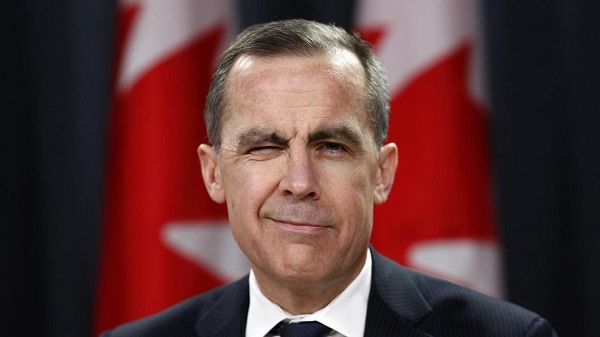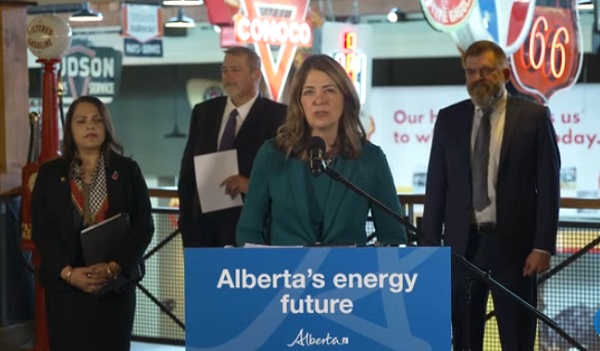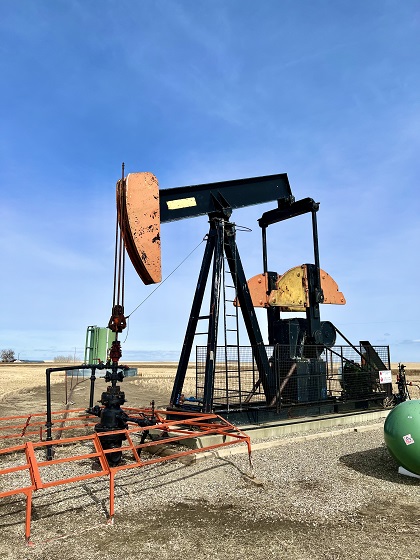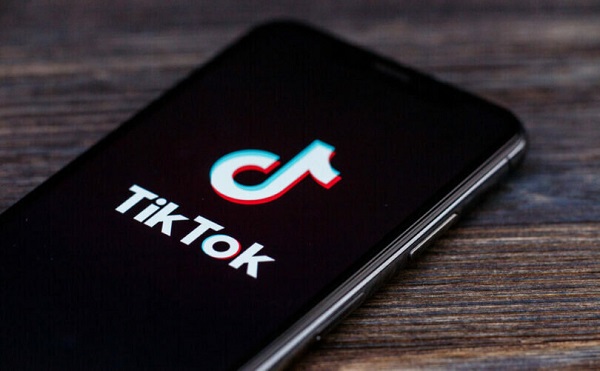Business
Federal government’s capital gains tax hike is worse than you think

From the Fraser Institute
By Jake Fuss and Grady Munro
Following the recent plunge in Canadian and U.S. stock markets, many Canadians likely saw a sharp decline in the value of their investments. Yet as Canadians reckon with this sudden change, other factors help reduce the return on their investments—namely, higher capital gains taxes.
When an investor sells a capital asset (i.e. stocks) for a higher price than they originally bought it, they realize a capital gain. Prior to this year, investors would pay tax on 50 per cent of any gain (based on their highest marginal personal income tax rate), but the Trudeau government recently increased that inclusion rate to 66.7 per cent for capital gains above $250,000.
This increase will cause economic damage and increase taxes for many middle-class Canadians—despite being framed by the government as a tax increase on the wealthy. And the effect is even more harmful than it first appears because capital gains taxes don’t adjust for inflation.
Inflation, the general rise in the prices of goods and services in the economy, erodes the purchasing power of money. For example, if a basket of goods costs $100 in Year 1, and annual inflation is 4 per cent, that exact same basket would cost $104 in Year 2. The Bank of Canada maintains a target inflation rate of 2 per cent per year, but in recent years the rate has well-exceeded that target.
From 2021 to 2023, Canada experienced an average annual inflation rate of 4.7 per cent. And though inflation is easing and fell to 2.5 per cent last month, by the end of this year prices are still expected to be 17.5 per cent higher than they were in 2020. For comparison, prices increased 6.7 per cent from 2016 to 2020.
While inflation erodes the purchasing power of one dollar, it also erodes the returns people receive from their investments. If an asset increases in value by 5 per cent over one year, but inflation is 4 per cent, the asset’s real value has increased by just 1 percentage point. In other words, of the total 5 per cent gain, 4 percentage points are the “inflationary” gain while 1 percentage point is the “real” gain.
Which takes us back to the Trudeau government’s tax hike on capital gains. Unlike income thresholds for federal personal income taxes, which are adjusted to account for inflation, capital gains taxes don’t distinguish between “inflationary” and “real” gains. Therefore, even if a realized capital gain is solely inflationary—meaning there’s no increase in real wealth—the federal government will still levy the same amount of tax as it would if there was no inflation at all.
This is what’s happening right now. After years of high inflation, inflationary gains represent a significant share of the capital gains Canadians are currently realizing. For example, from the beginning of 2020 to the end of 2023, the S&P/TSX Composite Index (Canada’s benchmark stock market index) increased 22.6 per cent. However, after adjusting for inflation (a cumulative 14.7 per cent), that 22.6 per cent represents a real gain of less than 8.0 per cent. As such, a large portion of revenue the Trudeau government expects to generate from raising capital gains taxes will originate from inflationary gains rather than actual increases in asset values.
As Canadians struggle with a weak economy, the Trudeau government’s recent capital gains tax hike will only add to the problem. But after years of high inflation, the effect is even worse than you might think.
Authors:
Business
PM Carney’s Astounding Conflicts Are Clearly Exposed. What Will Parliament, The Media, And Voters Do About It?

Will opposition parties force an election? Will the media demand Carney account for his conflicts? Will voters continue to allow Carney and Brookfield to profit from Carney’s leadership as they condemn the US President for doing the same?
NEWS ALERT!!!! https://t.co/HrhXGCyfPq
— Andrew Scheer (@AndrewScheer) October 1, 2025
From Conservative Party Communications
Conservative members of the Ethics Committee released the following statement on its ongoing investigation into Prime Minister Mark Carney’s conflicts of interest:
“Yesterday, the Ethics Committee heard scathing testimony from Canada’s leading ethics and accountability experts on the façade that is Mark Carney’s so-called blind trust – and his conflict of interest screen which is nothing more than a smokescreen.
“Leading ethics and conflict of interest experts told MPs that these measures are entirely insufficient, and that Prime Minister Carney stands to make millions from his investments while keeping them largely hidden from Canadians. The breadth of Carney’s conflicts and potential to benefit financially are entirely unprecedented in federal Canadian politics.
“Carney was involved in structuring Brookfield’s Global Transition Funds, from which he is set to receive carried interest payments potentially worth tens of millions of dollars. Carney knows exactly what assets are in these funds, but he has refused to disclose them. If the funds make money, he makes money – and the decisions he makes as Prime Minister will impact their value.
“Democracy Watch founder Duff Conacher testified that the Conflict of Interest Act allows Carney to ‘secretly profit’ from ‘secret investments’ – dismissing blind trusts as ‘not blind at all’ – and confirmed that Carney knows exactly what is in his blind trust. It is only the public that is blind to the full extent of the Prime Minister’s holdings.
“As currently written, the Act allows the Prime Minister to participate in ‘99% of the decisions’ that impact his private investments. Conacher considers the legislation a ‘sad joke’ – noting that ‘any time [Carney] is making a decision that affects businesses in Canada, he is in a financial conflict of interest.’
“As York University’s Dr. Ian Steadman told the Committee, blind trusts simply ‘aren’t enough’ to prevent public office holders from advancing their personal financial interests.
“Witnesses also slammed the Prime Minister’s conflict of interest screen. The screen is enforced by Carney’s top two aides who serve at his pleasure and are not independent. It lacks any transparency or oversight mechanism, which Conacher noted is a violation of the Act.
“The Ethics Commissioner has the power to strengthen the ethics screen and enforce full transparency today. He has failed to do so. This is deeply troubling, and must be addressed.
“These revelations are just the tip of the iceberg in an ongoing investigation. Conservatives will continue to expose Mark Carney’s unprecedented conflicts of interests and fight to close the loopholes in the Act that the Prime Minister is taking advantage of.”
Alberta
Ottawa’s Firearms Buyback Plan: Federal Government Puts Provincial Authority In Its Sights

From the Frontier Centre for Public Policy
It’s about politics and provinces are right to refuse to play along
Federal Public Safety Minister Gary Anandasangaree’s leaked admission that Ottawa’s firearms buyback is unenforceable was no slip. It exposed the way federal power is deployed for partisan gain while provinces are left to pay the bill.
The leak matters because it exposes a pattern, not an exception. Ottawa drafts policies to suit its politics and expects provinces to carry the weight. Police budgets, university research chairs, hospital systems and housing markets are treated as levers to be pulled from Ottawa. The effects are felt locally, but the decisions are made elsewhere.
Consider the pattern. The Online Harms Act, rejected more than once, is introduced yet again, as if repetition can substitute for consent. Health care dollars are tied to federal strings that reorder provincial systems with no regard for local capacity. Immigration quotas climb at a pace provinces cannot house or school. Environmental rules descend without negotiation, upending years of co-operative planning. Each measure arrives as an edict. Consultation is reduced to announcement.
Resistance has already begun. Saskatchewan moved early, adopting legislation that makes any federal confiscation program subject to provincial authority, including RCMP operations. In Alberta, Premier Danielle Smith has gone further, declaring flatly: “We will not allow police in Alberta to confiscate previously legal firearms. I have directed two of my ministers to relentlessly defend Albertans’ right to lawful and safe possession of firearms and the right to self-defence.”
Even before the introduction of the Sovereignty Act, Tyler Shandro, then Alberta’s justice minister, announced that the province would not use its police or prosecutors to carry out confiscations. Although former premier Jason Kenney opposed a Sovereignty Act, his government likewise refused to act as Ottawa’s enforcer.
Alberta and Saskatchewan have since given themselves legislative tools, Sovereignty Acts, which assert the right of provinces to decline enforcement of federal laws they judge unconstitutional. These statutes formalize existing constitutional powers. Provinces without Sovereignty Acts have also drawn lines. Ontario has signalled its refusal to help enforce Ottawa’s firearms program.
These positions are lawful, rooted in the Constitution’s division of powers, which assigns the administration of justice and policing to the provinces.
This clarity ought to attract others. Manitoba, with one of the highest proportions of licensed hunters in the country, has strong reason to resist Ottawa’s targeting of lawful gun owners. Communities are not made safer by seizing deer rifles from responsible hunters, nor are public services improved by diverting scarce provincial resources into a program that federal ministers concede will not work. Manitoba would do well to follow Alberta and Saskatchewan in defending its jurisdiction, whether through a Sovereignty Act or by refusing to play Ottawa’s game.
The point is practical. Prairie provinces cannot spare rural detachments to seize hunters’ rifles because the Liberal caucus fears losing seats in Montreal. They cannot put their power grids at risk to meet Ottawa’s timelines while households absorb higher bills. Universities cannot be turned into federal policy pilot projects. Provinces exist to govern their own communities, not to absorb the fallout of federal experiments.
The genius of federalism lies in the division of authority, which encourages compromise and minimizes tyrannical imposition. Ottawa governs in its sphere, provinces in theirs. Where the two overlap, cooperation must be negotiated, not imposed. Sovereignty Acts sharpen that principle. They remind Ottawa that partnership is earned, not dictated.
What Anandasangaree’s admission exposed was not only the cynicism of one firearms program. It revealed a method of governing: federal power deployed for partisan gain, with provinces reduced to instruments. That cannot endure. Canada was never meant to be a chain of command. It was built as a contract—one that requires respect for provincial authority.
Provinces that refuse to carry out Ottawa’s politically motivated projects are not weakening Canada; they are enforcing its terms.
Marco Navarro-Genie is vice-president of research at the Frontier Centre for Public Policy and co-author, with Barry Cooper, of Canada’s COVID: The Story of a Pandemic Moral Panic (2023).
-

 National2 days ago
National2 days agoCanada’s birth rate plummets to an all-time low
-

 Alberta1 day ago
Alberta1 day agoAlberta Takes The Lead: With no company willing to spearhead a new pipeline under federal restrictions, Danielle Smith grabs the reins
-

 illegal immigration2 days ago
illegal immigration2 days agoIreland to pay migrant families €10,000 to drop asylum claims, leave country
-

 espionage2 days ago
espionage2 days agoNorth Americans are becoming numb to surveillance.
-

 Alberta1 day ago
Alberta1 day agoTaxpayers: Alberta must scrap its industrial carbon tax
-

 Crime2 days ago
Crime2 days agoPierre Poilievre says Christians may be ‘number one’ target of hate violence in Canada
-

 International1 day ago
International1 day agoNetanyahu hails TikTok takeover as Israel’s new ‘weapon’ in information war
-

 Business1 day ago
Business1 day agoElon Musk announces ‘Grokipedia’ project after Tucker Carlson highlights Wikipedia bias






